Russian President Vladimir Putin faces humiliating reality and political ruin
As the war in Ukraine drags on, Vladimir Putin’s last battlefield may lie back home in Russia, where the prospect of “regime collapse” lurks.
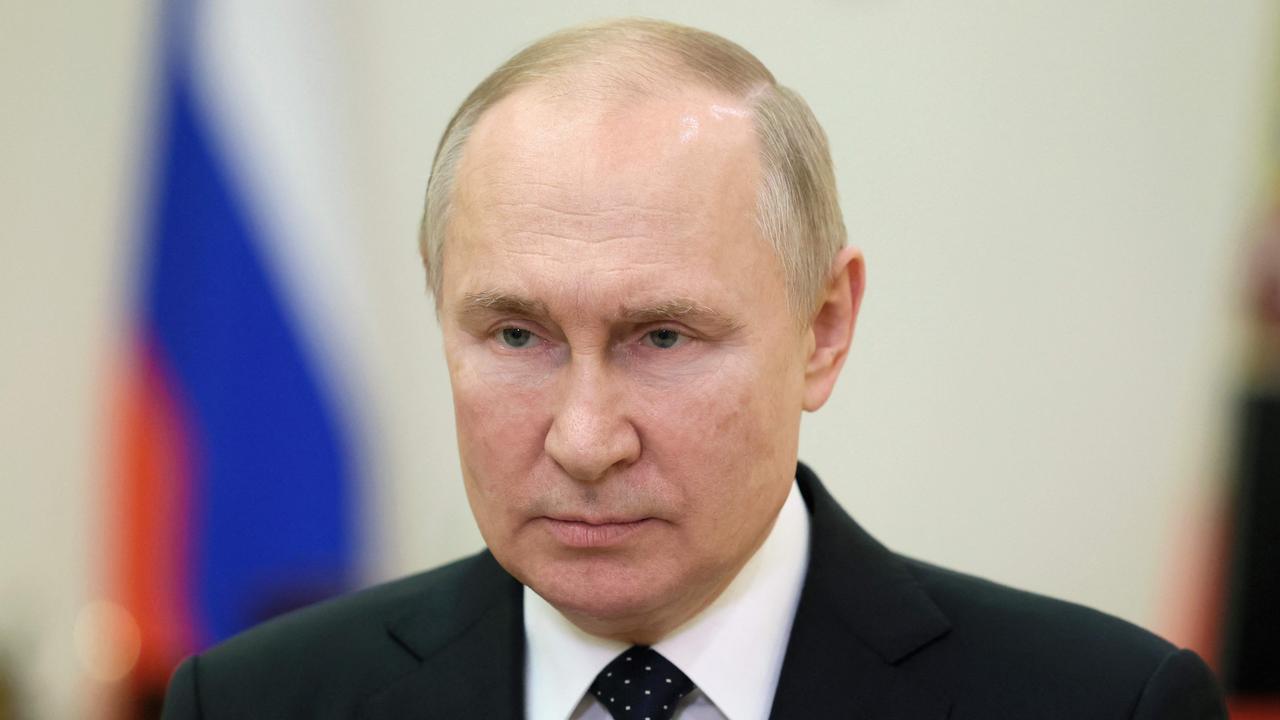
Russian President Vladimir Putin is in deep trouble. And he knows it.
Trapped between humiliating defeat and devastating escalation, his dictatorial rule looks very shaky.
Putin is in the exact place he didn’t want to be.
Russia has a violent history of regime change sparked by failed wars.
The disastrous Russo-Japanese war of 1905 and World War I contributed to the 1917 revolution. The collapse of the Soviet Union came in 1991 after a humiliating retreat from Afghanistan.
In 2023, the question is no longer whether or not Russia can win its invasion of Ukraine. Instead, pundits are speculating on how comprehensive its defeat will be.
And whether or not Putin can survive.
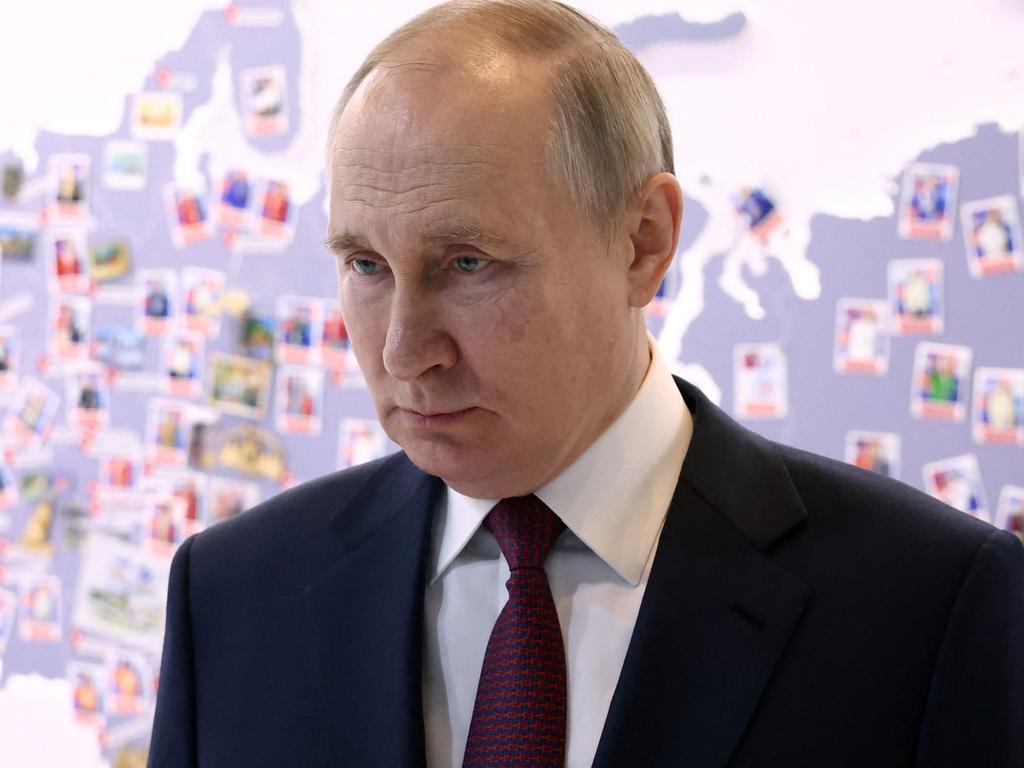
Russia has a long history of revolution. And history shows these come when governments are too rigid to respond to economic, policy and military failures.
“Putin is at risk in all these categories. His management of the war has been awful, and the Russian economy is contracting,” CFR fellow Liana Fix and CSIS associate Professor Michael Kimmage argue in Foreign Affairs.
“In the face of these dismal trends, Putin has doubled down on his errors, all the while insisting that the war is going according to plan.”
Now Putin faces a fight on the home front.
“The final scenario for the war’s end would be defeat through regime collapse, with the decisive battles taking place not in Ukraine but rather in the halls of the Kremlin or in the streets of Moscow,” the analysts warn.
The threat isn’t from the general populace, yet. Instead, it is among Putin’s own carefully balanced power base.
“Russia is heading toward a final battle between the radicals, for whom escalation is a way of life, and the realists, who understand that continuing to up the ante could lead to their country’s collapse,” says Carnegie Endowment for International Peace senior fellow Tatiana Stanovaya.
“It’s impossible to say right now who will win this battle, but it will determine not only the outcome of the war in Ukraine, but also the future of Russia.”
The tides of war
It was supposed to be a three-day war: A drive on the Ukrainian capital of Kyiv with his tanks welcomed with open arms as liberating heroes.
It was intended to prove Russia was once again a world power – the first step in recreating a Russian Empire.
It was meant to expose the United States and the West as all talk and no action.
It was designed to put Putin at the top of a new world order alongside China’s Chairman Xi Jinping.
It didn’t happen.
The defenders of Kyiv dug in. The West rushed in urgent supplies of antitank missiles. Putin’s forces were at first stalled, then repulsed. Since April, Russia’s invading army has slowly but steadily been rolled back towards the pre-war borders.
And no amount of Kremlin spin has been able to hide that.
Wrecked tanks. Crashed aircraft. Mountains of body bags. Legions of wounded. It’s all put Putin in an unexpectedly uncomfortable position.
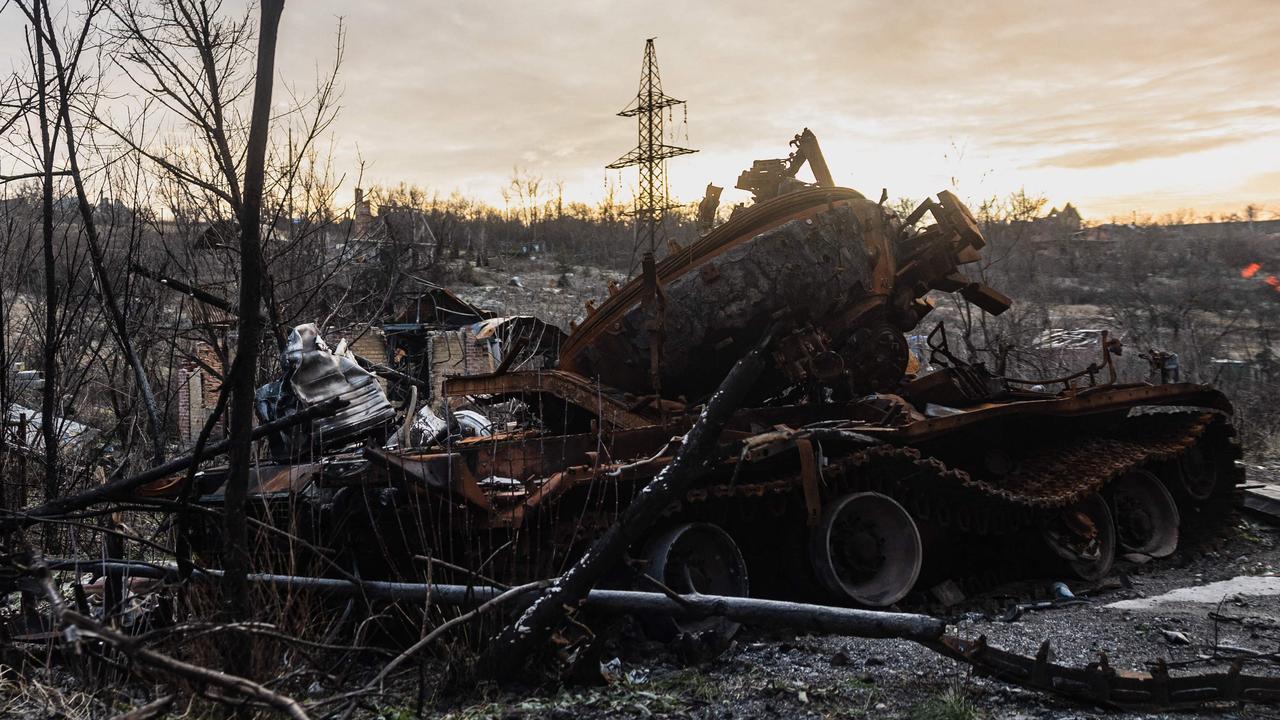
In just 10 months, the Russian military has lost more senior officers than the Soviet army did in its 10-year war against Afghanistan.
Now Putin’s laying low.
He cancelled his hallmark end-of-year media talkback marathon. He’s breached the Russian constitution by refusing to give an annual “state-of-the-union” style address to parliament.
Analysts believe this points to a dramatic weakening of the strongman’s position.
“Up until September, it seemed to the (Russian) elite that Putin knew what he was doing,” says Ms Stanovaya.
“But after the retreat from Kharkiv and Kherson, everything is being seen as a rapid descent into chaos and even the collapse of the country.”
Feet of clay
Putin has proven unwilling to learn from his mistakes. His strategic thinking has been exposed as mostly self-delusion. And the political system he built based on cronyism, kickbacks and corruption ended up undermining his dreams of conquest.
Now the West must prepare for the next act in this unfolding Russian tragedy.
The first – and least likely – scenario is Russia accepting a negotiated settlement on Ukraine’s terms.
“For this approach to pass muster within the regime, hardliners — possibly including Putin himself — would have to be marginalised,” Fix and Kimmage argue.
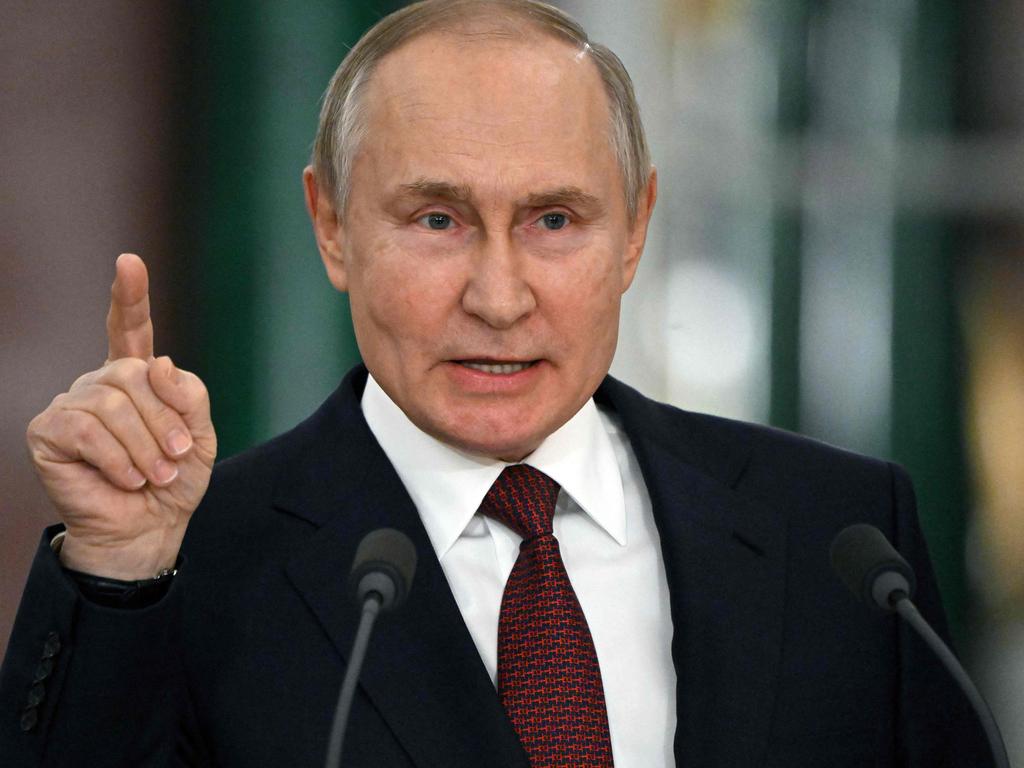
The second would involve a comprehensive military defeat. “Russia would transform from a revisionist state into a rogue one, a transition that is already underway, and that would harden the West’s conviction that Russia poses a unique and unacceptable threat,” they add.
Another possibility is regime collapse.
“Putin has concentrated power rigidly in his own hands, and his obstinacy in pursuing a losing war has placed his regime on shaky ground,” the analysts warn.
So far, however, the risk of a popular uprising appears remote.
“At this point, the Russian public has not risen up to oppose the war. Russians may be sceptical of Putin and may not trust his government. But they also do not want their sons, fathers, and brothers in uniform to lose on the battlefield.”
But death by falling down stairs and out of windows hasn’t prevented the emergence of factions among his closest followers.
“Never before have Putin’s strategic decisions — generally seen as the price of stability — pushed the Russian elites to the brink of a divide,” says Stanovaya.
Fish rot from the head
Russia’s elite families have benefited immensely from Putin’s 23 years of authoritarian rule.
In return, they ignored the gradual concentration of power in his hands. They didn’t resist the rise of his secret police. And the invasion of Georgia and the annexation of Crimea were welcomed.
“The invasion of Ukraine didn’t divide the elites, though it came as a shock to them,” writes Stanovaya.
“Willingly or otherwise, they had to accept the war as a fait accompli. Anyone who was strongly opposed to it simply left the country. If they were unable to leave, they remained silent.”
But Putin had put himself in a position where he had to win.
“It didn’t matter what that meant in practice, but defeat could well bring sociopolitical destabilisation, and the elites certainly don’t want a revolution,” Stanovaya adds.
Now the Kremlin is divided over how to avoid collapse.
“And since the divide is among Kremlin insiders — inside the apparatus of repression itself, tailored to fight the opposition — not much can be done about it,” she explains, adding that “Putin looks like a weak figure to both camps in the elite.”

The pragmatist camp is gathering around the leaders of Russia’s giant corporations, such as Rosneft CEO Igor Sechin and Rostec CEO Sergei Chemezov, says Stanovaya. On the other hand, the escalation camp is rallying to the flags of mercenary boss Yevgeny Prigozhin, Chechen strongman Ramzan Kadyrov and “General Armageddon” Sergei Surovikin.
Prigozhin and Kadyrov command their own private armies. And they’ve had their favourite military commander, Surovikin, put in command of the official war effort.
And General Surovikin has a history of insurrection. He led a coup attempt against Soviet President Mikhail Gorbachev in August 1991.
“They may not yet herald any challenge to Putin’s rule. But the prospect that the influence of these three hardliners is jointly growing should ring alarm bells,” says the Hudson Institute Centre on Europe and Eurasia.
The clock is ticking
“Putin has made sure that he remains in firm control of the traditional military, the security services, and the Russian population,” explains Professor of International History at the London School of Economics Vladislav Zubok.
“The capital is calm and well-fed, and the Kremlin has ensured that no army of unhappy conscripts is stationed nearby, as was the case in March 1917. Those who might have led a revolution have instead fled abroad.”
And Putin still has a commanding presence.
“Although increasing numbers of Russians no longer trust their own government and media, they do not trust their Western counterparts, either,” Zubok adds.
“Ordinary Russians have accepted their government’s explanation that Western sanctions were imposed to crush the Russian people.”
This week, Putin appeared for the first time to confirm that not everything was going to plan.
On Wednesday, Putin gave a speech to the Kremlin’s Board of the Defence Ministry. In it, he admitted “hostilities have highlighted issues that need our special attention, including issues we have discussed more than once. I am talking about communications, automated command and control systems for troops and weapons, counter-battery tactics, target detection, and so on.”
He also ordered his senior staff to guarantee Russian soldiers get “medical kits, food, dry rations, uniforms, footwear, protective helmets and bulletproof vests” amid reports of collapsing morale on the front lines.
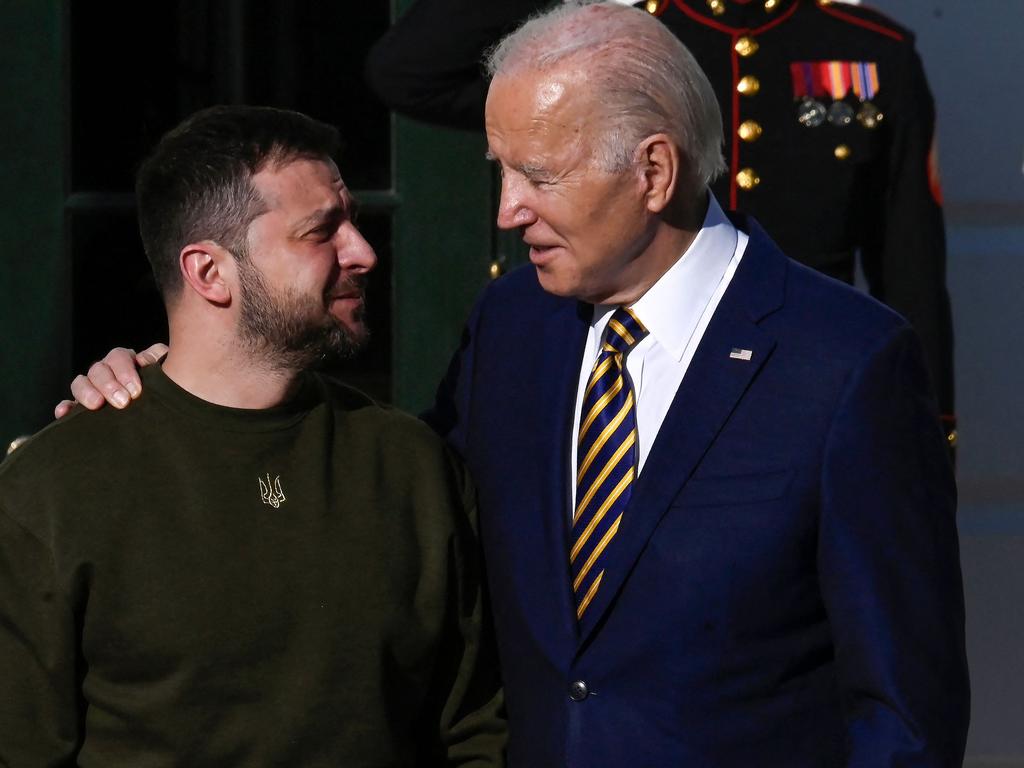
Later, he conceded the need to end the war – while attempting to deflect blame on Ukraine.
“All armed conflicts end one way or another with some kind of negotiations on the diplomatic track,” he added.
“Sooner or later, any parties in a state of conflict sit down and make an agreement. The sooner this realisation comes to those who oppose us, the better. We have never given up on this.”
Putin’s political future rests on the strength of such spin.
“The power of Russia’s ageing dictator rests on sowing and maintaining fear, apathy, cynicism, and mistrust among the country’s elites. With more Russian defeats, and further mobilisation, millions of Russians may begin to blame Putin, just as their predecessors blamed Tsar Nicholas and Gorbachev,” Zubok warns.
“Combined with a crisis of morale, apathy, and exhaustion among the troops, such a shift in public opinion could generate a political crisis. It would be the moment when Russian political elites would have to decide whether to compromise with the West or fight to the end.”
Jamie Seidel is a freelance writer | @JamieSeidel






